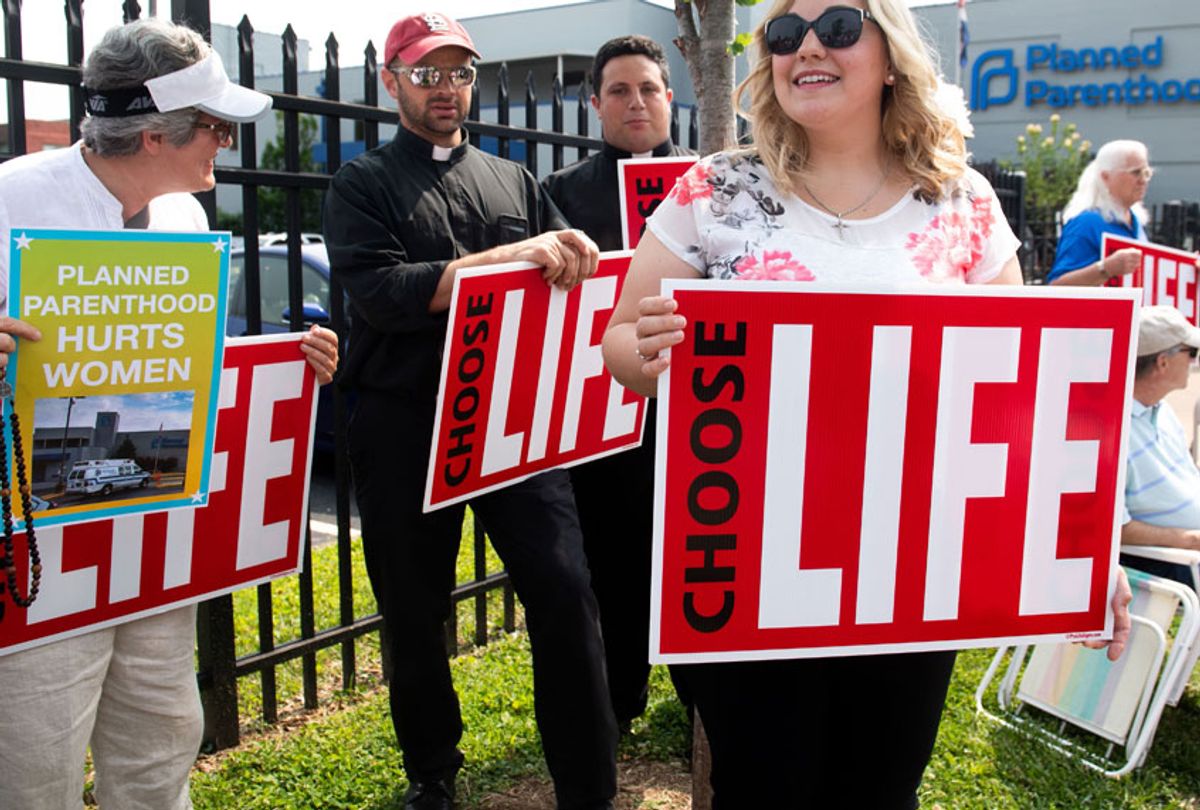The Ohio attorney general's office ordered clinics to stop all "nonessential" abortions because of the coronavirus, but advocates claim these procedures cannot be delayed "without profound consequences."
Ohio, where lawmakers recently passed a "heartbeat" bill and introduced a bill that would create a felony called "abortion murder," sent out letters requiring clinics to halt all "nonessential and elective surgical abortions," citing federal guidelines intended to limit the amount of personal protective equipment (PPE) used by health care facilities. The Trump administration urged all health care facilities to "postpone any elective medical procedures."
"The order was issued, in part, to preserve PPE for health care providers who are battling the COVID-19 pandemic that is spreading in our state and also to preserve critical hospital capacity and resources," said the letters, which were obtained by The Columbus Dispatch.
Bethany McCorkle, a spokeswoman for the attorney general's office, told CNN that "this is not an abortion issue."
"A letter was also sent to a urology group that was allegedly performing elective surgeries," she said, adding that if the state's health department determines the order was "violated by any surgical facility in Ohio, they can refer it to our office to pursue legal action on behalf of the Ohio Department of Health."
Health Director Amy Acton said her order banning non-essential surgeries includes "any procedure that can be delayed without undue risk to the current or future health of a patient."
But other states like Massachusetts and Washington have excluded abortions in their directives to delay elective surgeries.
The American College of Obstetricians and Gynecologists and the American Board of Obstetrics and Gynecology issued a joint statement last week warning that abortions are "an essential component of comprehensive health care."
"The consequences of being unable to obtain an abortion profoundly impact a person's life, health and well-being," the statement said.
Planned Parenthood Southwest Ohio Region said in a statement that it was already complying with directives to limit the use of PPE and would continue to perform abortions.
"Planned Parenthood's top priority is ensuring that every person can continue accessing essential health care, including abortion," the organization said. "Under that order, Planned Parenthood can still continue providing essential procedures, including surgical abortion, and our health centers continue to provide services that our patients depend on."
Pro-choice advocates hit out at the state's attempt to include abortions in the nonessential surgery category.
"Abortion care is a time-sensitive medical situation that cannot be significantly delayed without profound consequences," the advocacy group NARAL Pro-Choice Ohio said. "Abortion is an essential health service. Attorney General Dave Yost and Ohio Right to Life President and State Medical Board member Mike Gonidakis should not be exploiting the COVID-19 crisis to further their agenda to close Ohio's abortion clinics."
Kellie Copeland, the group's executive director, accused the state of using the pandemic to push an anti-choice agenda.
"People should not push ideological agendas that interfere with the doctor-patient relationship. Period," she told The Washington Post. "But especially not right now, not during a pandemic . . . I just think that's reckless to put care even further away from people. "
Civil rights organizations also accused the state of trying to use a crisis to limit access to essential health care.
"This is an unprecedented time & people's health & safety must be protected; but the gov't shouldn't use this crisis as an excuse to target clinics & try to take away the ability of Ohioans to access abortion, which is time-sensitive, essential health care," the ACLU of Ohio tweeted.
Warning that it could have unintended consequences, Democratic lawmakers vowed to fight the move.
"Using this emergency to advance his political agenda is shameful. Forcing women to travel to fulfill their constitutional rights, when all other leaders are advising no travel, is just stupid stupid!" Rep. Kristen Boggs, one of the top Democrats in the state House, told The Columbus Dispatch, adding that the order was an "epic failure in judgment and leadership."



Shares